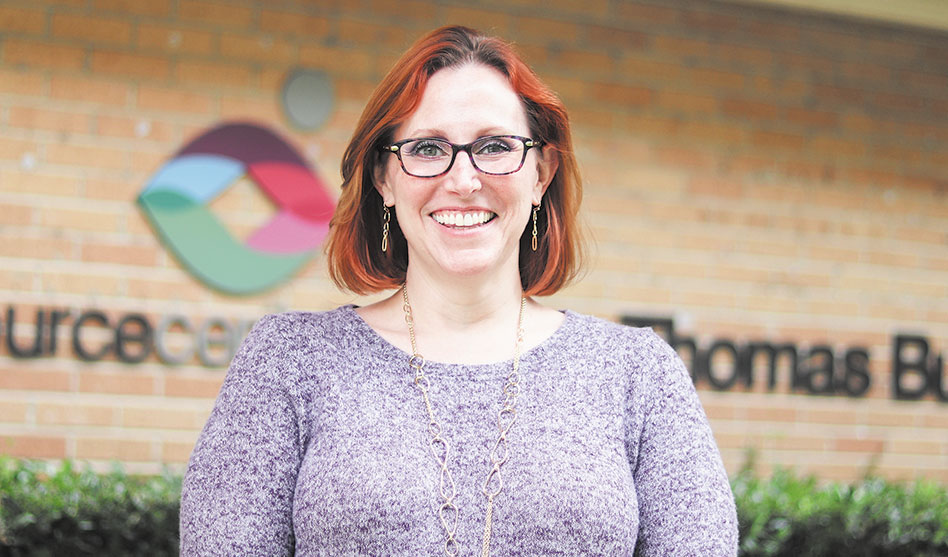Courtney Sherman
Dr. Courtney Sherman describes her approach to patient care
DAVID TAFFET | Senior Staff Writer
taffet@dallasvoice.com
 Courtney Sherman said she’s a women’s health practitioner by trade specializing in sexual health. She holds a doctor of nursing practice degree. And the day we spoke she had passed her American Academy of HIV Medicine credentialing exam so is now considered an HIV specialist and has added AAHIVS to her long list of academic credits. She is now spending half her day at Resource Center’s Nelson Tebedo Clinic on Cedar Springs Road in the PrEP program and half her time at the Center’s LGBTQ Health primary medical care office at the health campus on Reagan Street.
Courtney Sherman said she’s a women’s health practitioner by trade specializing in sexual health. She holds a doctor of nursing practice degree. And the day we spoke she had passed her American Academy of HIV Medicine credentialing exam so is now considered an HIV specialist and has added AAHIVS to her long list of academic credits. She is now spending half her day at Resource Center’s Nelson Tebedo Clinic on Cedar Springs Road in the PrEP program and half her time at the Center’s LGBTQ Health primary medical care office at the health campus on Reagan Street.
Sherman said she learned primary care in a military town and then got into public health. She opened Tarrant County’s PrEP clinic but for the first couple of years wasn’t allowed to talk about it. She wasn’t sure how it should be run, but she knew keeping it a secret wasn’t going to work.
“I had no idea what I was doing,” she said. “I ran into opposition. I discovered the LGBT community and learned about the negligence of the medical community.”
The opposition to prescribing PrEP seemed related to the idea that it gave gay men freedom to have sex without worrying about contracting HIV. Sherman said she couldn’t see the difference between PrEP and taking the vaccine to prevent HPV that’s spread sexually and causes cancers.
She said from the beginning she approached PrEP from the standpoint, “If we can prevent HIV, that’s responsible.” But she said she felt she was working with people who thought there was “something wrong with gay men’s brains, [that] all they want to do is have sex.”
To Sherman, sexuality is a basic human activity. She had trouble understanding the stigma and equated it to her own sexuality. “Because I’m on birth control, I’m a slut?” she said. “Human beings have sex — regardless of age or gender or sexual orientation.”
Sherman, by the way, is married to a man and is the mother of four. Her dining room table is their Zoom home school, with her husband working from home and overseeing their children’s education.
Sherman is passionate about expanding access to PrEP and sexual health among the LGBTQ community. She said some patients come to her on the side so their primary care physicians don’t know they’re on PrEP, “like it’s dirty… .”
Sherman warned that her advice comes with a little bit of sarcasm. But, she added, Dr. Marc Tribble, who will be working with her as a primary care physician in Resource Center’s LGBTQ Health primary medical care office a few days a week, offers more traditional doctoring consultation for those who prefer that. She said their styles compliment each other well.
One bit of Sherman’s earliest medical experience has translated well into how she deals with insurance claims for transgender patients: Most medical offices would simply accept a rejection of coverage by an insurance provider, but Sherman has found ways to work around that. She said her first diagnosis of breast cancer was in a man, so she learned early to look for what’s unexpected and expect the insurance company to pay what’s covered.
But if a trans woman, for example, is having prostate problems, she’s going to treat the problem and deal with the insurance issues.
Sherman said Resource Center is looking to expand its primary care practice as well as get people on PrEP to protect themselves from HIV. To do that, Nelson-Tebedo now has bilingual staff. She encouraged trans men and women looking for competent medical care to make an appointment and try their services.
When it comes to the roll out of the vaccine to protect against the coronavirus, Sherman called it very piecemeal and said Resource Center would love to become a vaccine distribution point.
As to her style, she said she’s also a patient: “I always try to be real and human.”













